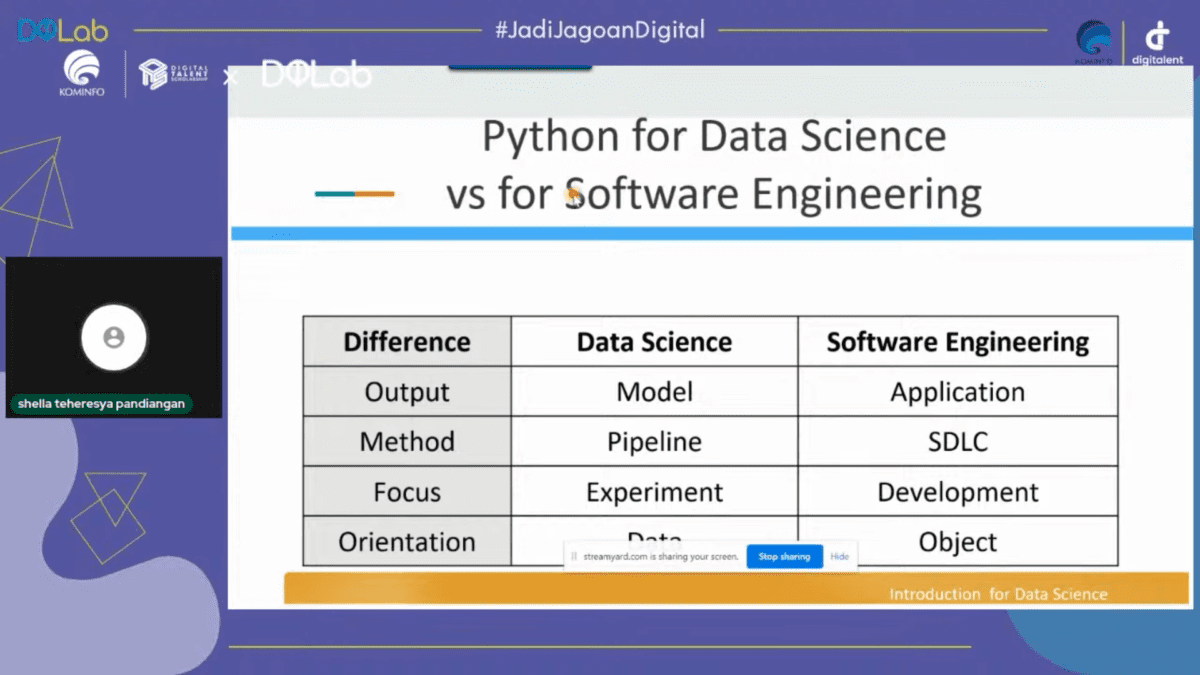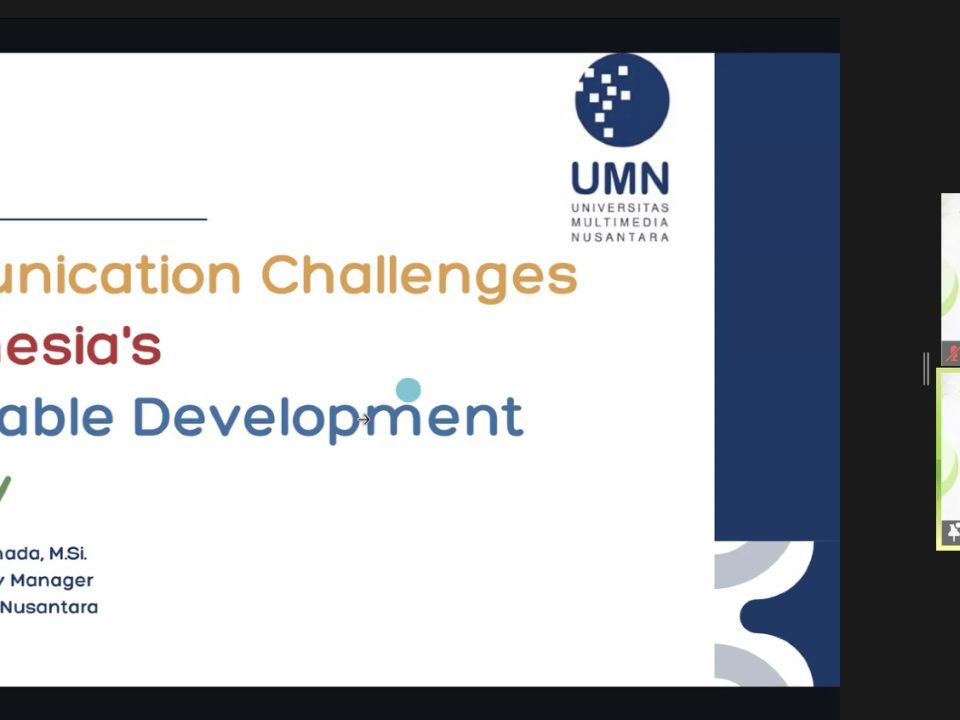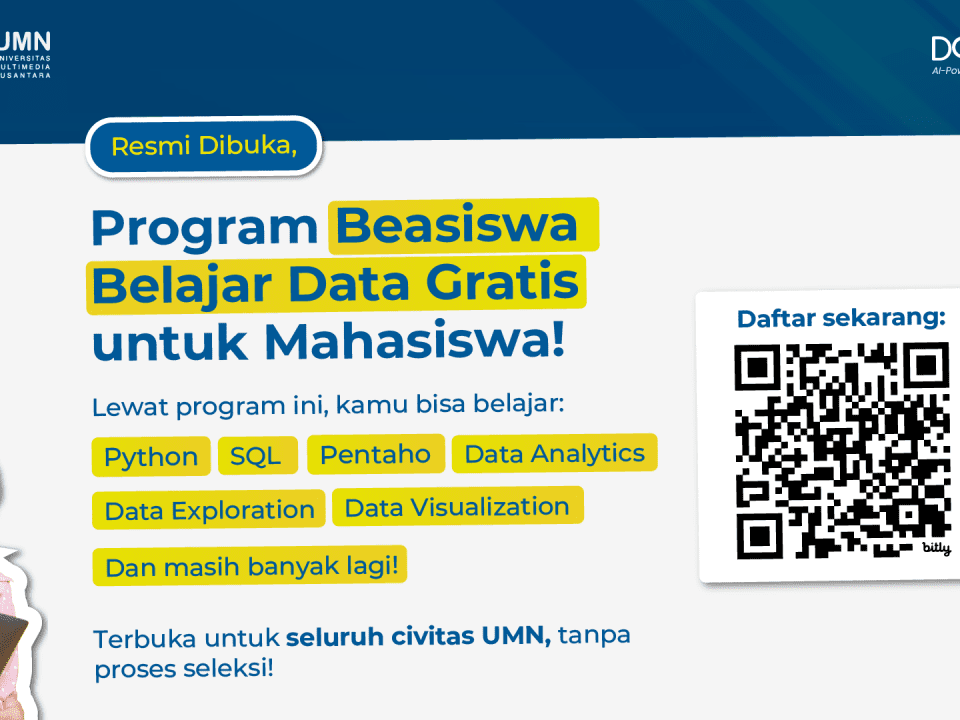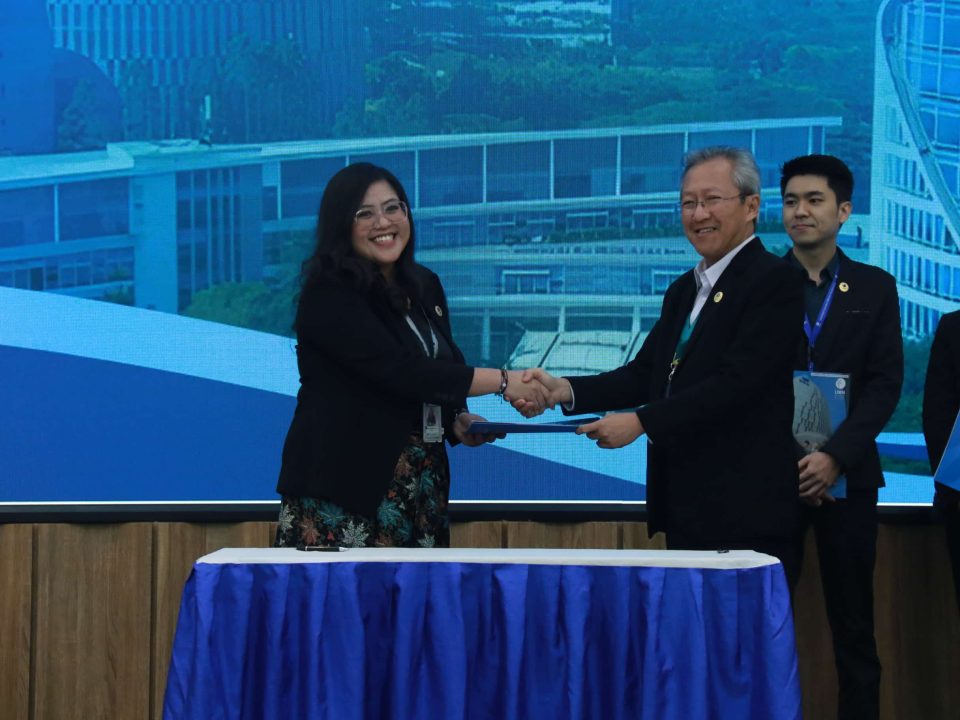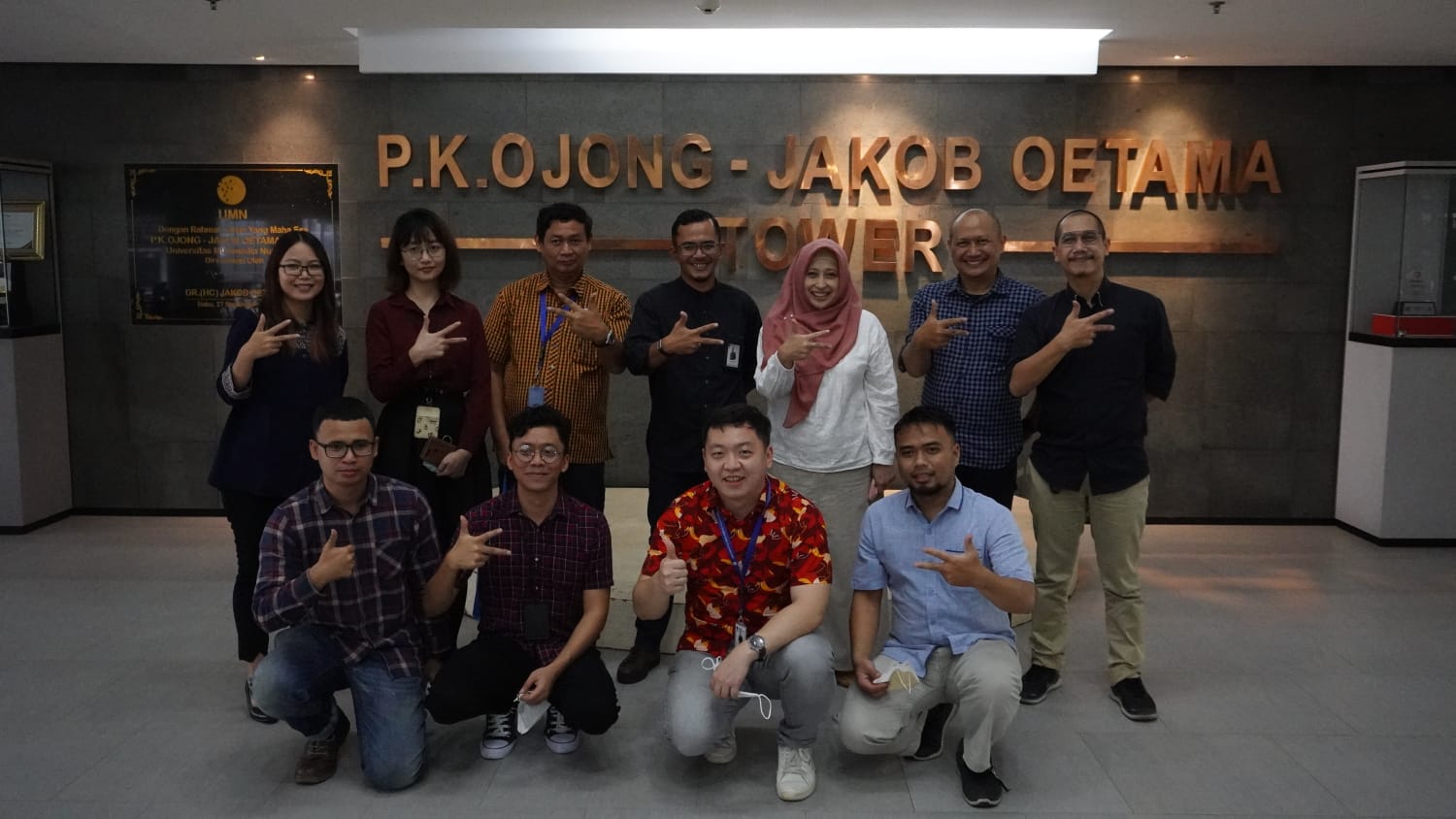
The Faculty of Art and Design of UMN Collaborates with the Faculty of Creative Industries of Telkom University
July 1, 2022
8 Skills That You Will Learn as a Journalism Major
July 4, 2022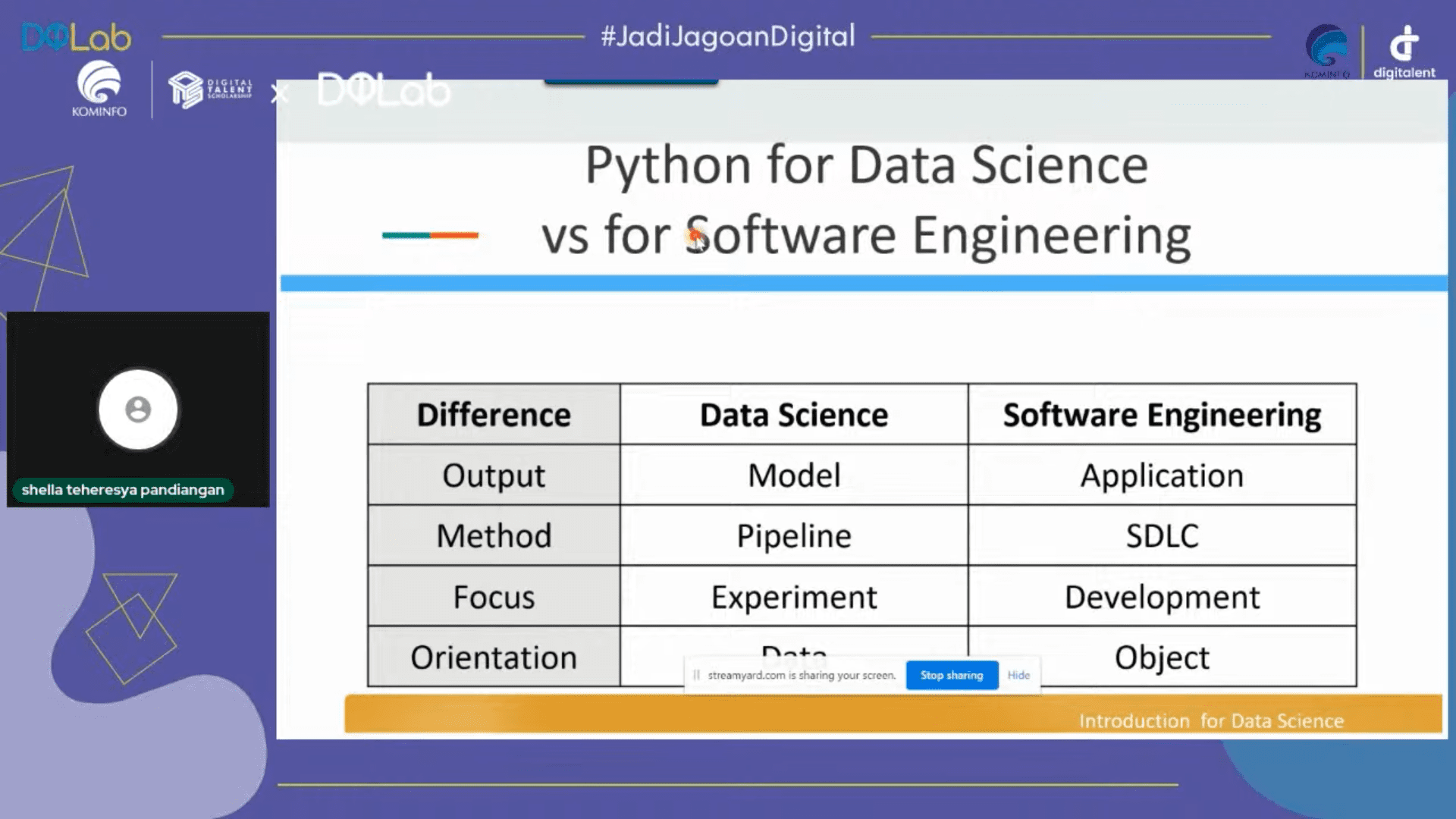
Python for Data Science vs for Software Engineering. (Doc. DQLab)
A data team consists of Data Scientist, Data Analyst, and Data Engineer. The three professions are interrelated with one another. Before the Data Scientist and Data Analyst process the data, a Data Engineer is in charge of the first step, which is collecting data. One of the tools used by a data team to help complete their work is Python. Thus, DQLab and the Ministry of Information and Technology conducted a live session themed “Python for Data Professional Beginners” on Thursday (10/03/22). This discussion was presented by Shella Theresya Pandiangan, a Data Scientist at United Tractor.
The discussion begins with an explanation of the role of a Data Engineer, who has a significant role in data processing. The main task of a Data Engineer is to collect a database or create architectural data so that the data has a clear relationship between one table and another.
In carrying out their duties, there are three skills that the Data Engineer must master, namely programming, such as Python and SQL Query, and mathematics because when the Data Engineer does programming, he will often meet with logic and big data problems. The tools that Data Engineers often use are Hadoop, NoSQL or SQL, and Python.
Based on Google Trends International scope, Python is the programming language that dominates the first rank as the most popular programming language. While in Indonesia, Java is the most dominating programming language because the knowledge to use Python is still lacking. So, it’s a great opportunity if you can master Python because your knowledge will be very much needed in the data world.
“Java and Javascript are usually used for application development and rarely used for data science. On the other hand, Python can be used for application development and data science,” Shella said.
Shella also pointed out “10 Data Science Skills needed in 2021.” The first place is Python, the second is SQL, the third is R, the fourth is Spark, the fifth is AWS, the sixth is Java, the seventh is Tableau, the eighth is Hadoop, the ninth is TensorFlow, and finally, Scala. This data is also the reason Python is essential to learn.
Python is popular because it is open-sourced, easy to build libraries, has simple syntax (English-Like), and is productive in its work. Python can also be implemented in various analytics, such as Artificial Intelligence, Data Scientist, Machine Learning, and Deep Learning. In addition to data, Python can also be implemented in web applications, mobile apps, and desktop apps.
“Productive here means, for example, when making web development using another programming language, we need 31 lines, but in Python, it is only 5 lines. So, if we make an application and compare it to other programming languages, using Python will save us more time,” Shella said.
Python for Data Science is different from Python for Software Engineering. The difference is first in the output. Firstly, Data Science results in a model, while Software Engineering results in an application. Second, the method used by Data Science is pipeline, while Software Engineering uses SDL. Third, Data Science focuses on experimentation, while Software Engineering focuses on development. Fourth, Data Science orientation is data, while Software Engineering is object-oriented.
Before closing the discussion, Shella provides brief material about the libraries in Python. First, Numpy is a Python library that focuses on scientific computing. Second, there are Pandas that focus on data analysis processes, such as data manipulation, data preparation, and data cleaning. And Shella also recommended the book “Python Data Science Handbook” for learning Python.
In this live session, Shella taught about variables, data types, input, basic operators, conditional statements, exception handling, loop statements, functions, and lambda. If you want to learn and practice directly everything that has been mentioned, you can try learning with DQLab. DQLab will provide learning starting from the basics, perfect for beginners.
by Lathifa Lisa | DQLab
Kuliah di Jakarta untuk jurusan program studi Informatika | Sistem Informasi | Teknik Komputer | Teknik Elektro | Teknik Fisika | Akuntansi | Manajemen| Komunikasi Strategis | Jurnalistik | Desain Komunikasi Visual | Film dan Animasi | Arsitektur | D3 Perhotelan | International Program, di Universitas Multimedia Nusantara. www.umn.ac.id

